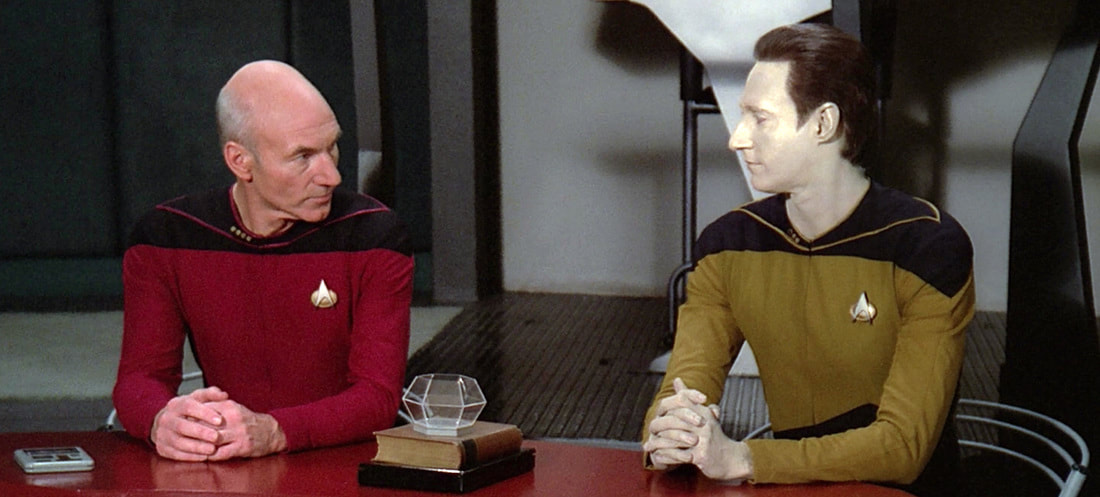Ideas come and go. Some of our favorite SciFi and Fantasy programs will tinker with something that's the latest trend in science; and while the tale might make for an interesting diversion it ends up being wildly dated when an audience rediscovers it years later. The stories that transcend the ordinary -- especially in the world of Star Trek -- are those are fundamentally stick very near to the human experience, even when that might mean assigning 'humanity' (or the trials of being human) to an android.
For example, Star Trek TOS's stellar "The City Of The Edge Of Forever" is a fabulous time travel yarn -- a brilliant 'what if' scenario that removes Starfleet from the equation when Dr. McCoy changes one little thing in Earth's distant past. However, at its core the story is more about love and loss than it is anything else as Captain James T. Kirk must let the woman he loves die in order to preserve the timeline. See what I mean? Time travel is merely a construct with which to tell a very human story.
Similarly, Star Trek: The Next Generation's "The Measure Of A Man" would appear to be a debate on the merits of Artificial Intelligence (at least, I've read some make that suggestion). For those unaware (or living on an island), the hour centers on Commander Data when he refuses to participate in a Starfleet order for his disassembly. The goal? Commander Bruce Maddox seeks to understand how to replicate the android in order to potentially make more of them. Eventually, Data's refusal prompts the requirement for a legal hearing, giving the episode a courtroom with which the various characters get to discuss the issue.
As one can imagine, the hour gives license to any number of related science topics -- the rights of organizations versus the rights of people; an examination of sentience; organics vs. synthetics ethics; etc. -- but so far as this watcher was concerned it all boiled down to a single line of dialogue. In her closing statement, JAG Officer Phillipa Louvois asked, "Does Data have a soul?"
Atheists would posit that the scene is a bit of a cannard -- a narrative misdirect -- because in their minds none of us have souls, but therein lies the rub, eh? That's a concept up to each of us to decide, certainly not a court of law. Nor one individual over another. Nor a movement. Nor a government. Nor a dictator. Simply put, it's up to Y-O-U. You get to make that decision. You get to do the legwork. And -- if you do -- then you get to aspire for its immortal worth.
Louvois's stated position -- that the pursuit of the self -- proves what the true 'measure of a man' remains: it's the province of the individual. It always has been. It always will be. Even when its examintion may be couched in all kinds of bells, whistles, technobabble, buttons, switches, positronic brains, or the like.
It's a brilliant hour, one that I've always called one of the best in all of Trekdom, and I celebrate it as today's SciFi Moment.
-- EZ


 RSS Feed
RSS Feed